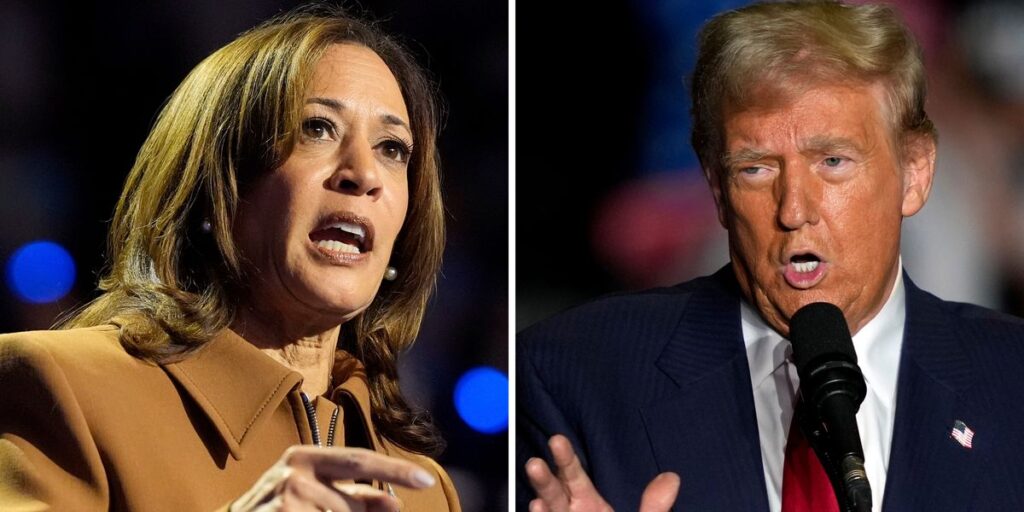Vice President Kamala Harris has strongly condemned former President Donald Trump’s recent remarks regarding former Wyoming Rep. Liz Cheney, declaring that such violent rhetoric should disqualify him from the presidential race. Speaking to reporters in Madison, Wisconsin, Harris emphasized that anyone aspiring to the presidency who engages in this kind of discourse demonstrates an unfitness for the role. Trump, during an appearance with Tucker Carlson, suggested a violent scenario involving Cheney, portraying her as a radical figure and imagining her in a life-threatening situation. These comments have raised significant concerns about Trump’s temperament and fitness for office, especially considering their implications regarding the treatment of political opponents.
Harris’s critique of Trump was not just limited to his comments about Cheney. She characterized Trump as increasingly unstable and vengeful, stating that his rhetoric has intensified and that he seems more fixated on punishing those he views as enemies rather than addressing the pressing issues facing the American populace. Cheney has publicly supported Harris and demonstrated a commitment to prioritizing country over party, which further accentuates the contrast between her character and Trump’s aggressive political tactics. Harris described Cheney as a patriot and expressed concern that Trump’s “enemies list” has continued to expand, suggesting a broader pattern of hostility towards anyone who opposes him.
Moreover, recent reports highlight the frequency and severity with which Trump has threatened his opponents. He has made over 100 public threats to seek retribution against those he perceives as adversaries, reflecting a deep-seated vendetta against political opponents. This trend has raised alarms about potential abuses of power, as Trump’s comments suggest a willingness to use state mechanisms against critics, framing them as a form of warfare. His assertion that he would treat the so-called “radical left” as an internal enemy, which he would confront if elected, further exemplifies this aggressive posture.
Trump’s dismissive attitude towards concerns about his threats presents a troubling aspect of his public persona. At a rally in North Carolina, he sarcastically mocked claims that he is intent on imprisoning political opponents, framing such fears as absurd and indicative of his critics’ own motives. By portraying his commitments to punishing political rivals as mere allegations, he attempts to normalize his rhetoric and diminish accountability for his statements. His gestures toward the press while expressing disdain for their coverage serve to amplify his narrative that he is the victim of baseless attacks, thus excusing any hostile rhetoric he employs.
Harris’s comments serve as both a critique of Trump’s character and an urgent call to action for Americans concerned about the erosion of democratic norms. She argues that Trump’s approach to opposition is not just politically dangerous, but fundamentally incompatible with the values of a democratic society. By prioritizing vengeance and intimidation over governance and dialogue, Trump risks undermining not only his political rivals but also the functioning of democracy itself. Harris’s advocacy for Cheney highlights a broader message of civility and responsibility in political discourse, contrasting sharply with the aggression that has become synonymous with Trump’s campaign trail rhetoric.
In summary, the discourse surrounding Trump’s violent comments and Harris’s response underscores a significant divide in American politics. Harris argues that rhetoric advocating violence is not only socially irresponsible but should serve as a fundamental disqualification from holding office. She positions herself and her allies as defenders of democratic values while portraying Trump as a destabilizing force that thrives on division and revenge. As the presidential race continues, these themes of accountability, respect for democratic processes, and the implications of leadership style will likely remain at the forefront of political discussion, shaping voter perceptions and choices in the upcoming election.

